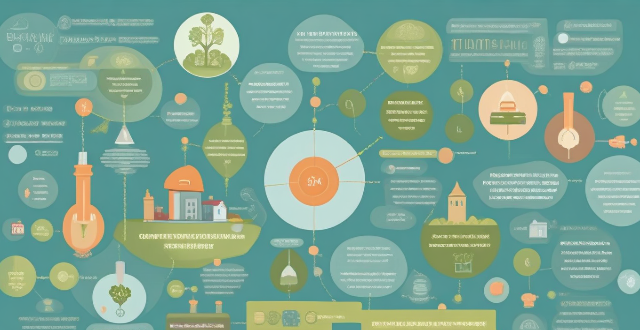Climate change legislation significantly influences renewable energy development by providing financial incentives, establishing mandated targets, supporting research and infrastructure, creating consumer awareness, fostering international cooperation, implementing regulations, setting environmental standards, and promoting economic growth through job creation. These measures collectively drive the energy sector towards sustainability and a low-carbon future.

Impact of Climate Change Legislation on Renewable Energy Development
Climate change legislation plays a significant role in shaping the trajectory of renewable energy development. By setting policies and regulations that prioritize the reduction of greenhouse gas emissions, governments create incentives for the adoption and expansion of clean energy sources. Here's a detailed look at how climate change legislation influences renewable energy:
Promotion of Renewable Energy Sources
- Tax Incentives and Credits: Governments often provide financial incentives such as tax credits or subsidies to encourage the deployment of renewable energy technologies. These can reduce the upfront costs for businesses and consumers, making renewables more competitive with fossil fuels.
- Feed-in Tariffs (FiTs): Some countries implement FiTs, which guarantee renewable energy producers a fixed price for the electricity they feed into the grid over a set period. This policy removes market price uncertainty and provides stability for investors.
Mandated Renewable Energy Targets
- Renewable Portfolio Standards (RPS): RPS laws require a certain percentage of total energy production to come from renewable sources by a specific date. This drives growth in renewable energy capacity as power companies must meet these targets.
- Quota Systems: Similar to RPS, quota systems with tradable green certificates allow flexibility in meeting renewable energy goals while maintaining market principles.
Research and Development Support
- Government Funding: Climate change legislation often includes provisions for public funding of research and development in renewable energy technologies. This helps advance technology and drive down costs.
- Collaboration with Academia: Partnerships between government agencies and universities foster innovation and technology transfer from theoretical concepts to practical applications.
Infrastructure Development
- Grid Upgrades: Legislation may include provisions for modernizing electrical grids to accommodate increased renewable energy integration, ensuring reliability and efficiency.
- Transmission Line Expansion: Building new transmission lines or upgrading existing ones is crucial for connecting remote renewable energy sources to demand centers.
Consumer Protection and Awareness
- Educational Campaigns: Governments run campaigns to educate the public about the benefits of renewable energy and how individuals can contribute to its adoption.
- Labeling Programs: Labeling programs help consumers identify products and services that have lower environmental impacts, encouraging them to make eco-friendly choices.
International Cooperation
- Global Agreements: International treaties like the Paris Agreement set global goals for reducing carbon emissions, which in turn drive national policies supporting renewables.
- Technology Transfer: Richer countries often commit to transferring renewable energy technologies to developing nations as part of their climate commitments, aiding global deployment.
Regulation and Compliance
- Emissions Trading Schemes: Cap-and-trade systems put a limit on emissions and allow companies to buy and sell allowances, creating an economic incentive to switch to cleaner energy sources.
- Carbon Pricing: Direct carbon taxes or pricing mechanisms make fossil fuels more expensive compared to renewables, steering investment towards cleaner alternatives.
Environmental Standards and Assessments
- Impact Assessments: Before approving large energy projects, governments conduct environmental impact assessments to ensure minimal harm to ecosystems, favoring renewable energy projects that typically have lower impacts.
- Performance Standards: Setting strict performance standards for energy efficiency in buildings, appliances, and vehicles indirectly boosts the demand for renewable energy solutions.
Job Creation and Economic Development
- Green Jobs: The growth of the renewable energy sector creates new jobs in manufacturing, installation, maintenance, and support services.
- Local Economic Stimuli: Investment in renewable energy projects can revitalize local economies, especially in rural areas where large solar or wind farms are constructed.
In conclusion, climate change legislation has a profound effect on renewable energy development by creating a conducive environment through financial incentives, regulatory frameworks, and international cooperation. These measures collectively accelerate the transition away from fossil fuels and towards a sustainable, low-carbon future.